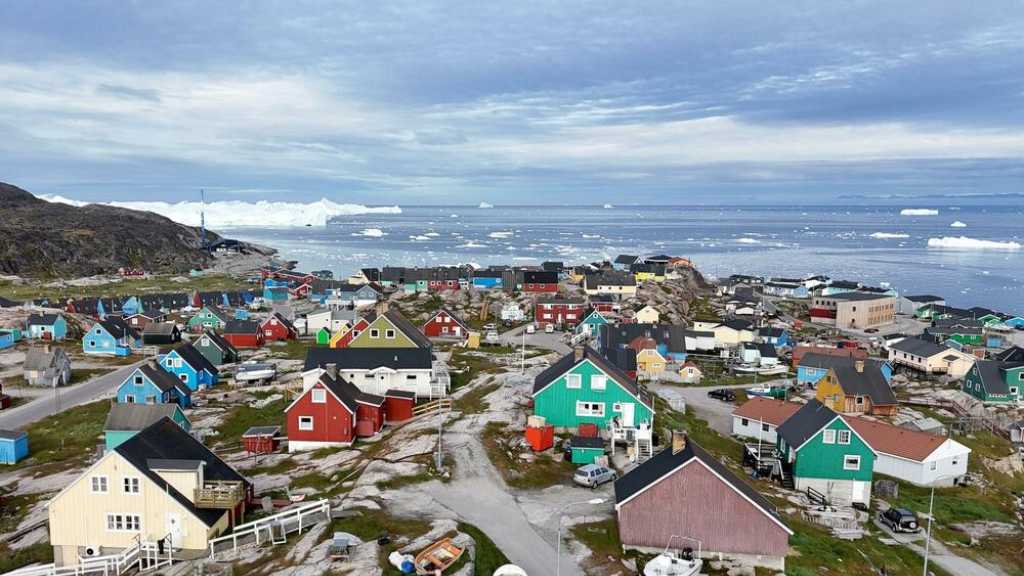Greenland for Sale: Colonial Dreams

By Mohamad Hammoud
US President Donald Trump's renewed proposal to purchase Greenland from Denmark has emerged as a contentious issue in international relations. Initially suggested during his first term in 2019, the idea was met with skepticism and outright rejection. As Trump prepares for a potential second term, he has reiterated his interest in acquiring the autonomous Danish territory, citing strategic and economic reasons. This essay critically examines the motivations behind Trump's proposal and explores the potential adverse effects on Greenland's indigenous population, environment, and geopolitical stability.
Motivations Behind the Proposal
Trump's interest in acquiring Greenland stems from several key motivations:
1. Strategic Military Importance: Greenland's geographic location in the Arctic makes it a valuable asset for military strategy, particularly for monitoring Arctic Sea routes and enhancing missile defense systems. The U.S. already maintains the Thule Air Base in Greenland, underscoring the island's military significance.
2. Natural Resources: Greenland is rich in untapped natural resources, including rare earth minerals, oil, and gas. As global warming accelerates the melting of ice sheets, these resources are becoming more accessible, potentially offering economic benefits to any controlling nation.
3. Geopolitical Influence: Acquiring Greenland could enhance U.S. influence in the Arctic, countering the growing presence of Russia and China. This aligns with Trump's "America First" policy, which seeks to assert U.S. dominance on the global stage.
Trump's desire to buy Greenland also reflects his penchant for transactional politics, treating international relations as a business deal. This approach raises ethical questions about treating sovereign territories as commodities and disregarding the rights and autonomy of the people who inhabit them.
Adverse Effects on the People of Greenland
One of the most pressing concerns regarding Trump's proposal is its potential impact on the Greenlandic people, who have a distinct culture and identity. With approximately 56,000 residents, primarily Inuit, these individuals have lived on the island for thousands of years. The idea of being sold like a piece of real estate undermines their sovereignty and self-determination.
Greenland's government swiftly rejected the proposal, emphasizing its independence and the need to maintain control over its affairs. US ownership could jeopardize cultural heritage and autonomy, as decisions about land use, resource extraction, and economic development would likely prioritize American interests over the local population's well-being. This scenario risks displacing communities and disrupting traditional ways of life.
Environmental Concerns
Trump's proposal also raises significant environmental issues. The Arctic is one of the planet's most fragile ecosystems, and increased resource extraction could have devastating consequences for both the environment and the climate. The potential for oil drilling, mining, and other industrial activities poses a direct threat to the pristine landscapes, wildlife, and ecosystems that define Greenland.
Melting ice caps contribute to rising sea levels and threaten unique wildlife that relies on stable ice conditions. Increased human activity could disrupt migration patterns, endanger species, and contribute to habitat destruction. Environmental degradation linked to resource extraction would ultimately harm the very people who depend on the land and sea for their livelihoods.
Moreover, the proposal exemplifies a broader trend of prioritizing economic gain over environmental protection. At a time when the world is grappling with climate change, Trump's ambition to exploit the Arctic for its resources contradicts the global push for sustainability and conservation.
Geopolitical Ramifications
The attempt to buy Greenland also has geopolitical implications that extend beyond US-Denmark relations. Such a move could strain diplomatic ties with Denmark and other countries in the region. Greenland's status as an autonomous territory indicates that any negotiations regarding its future should involve the voices of its people and their government, rather than being dictated by external powers.
Furthermore, the notion of purchasing a territory raises concerns about imperialism and neocolonialism. The acquisition of Greenland could set a dangerous precedent, where powerful nations treat less powerful regions as pawns in their strategic games. This might lead to increased tensions and conflicts over territory in an already volatile geopolitical landscape.
Conclusion
Trump's attempt to buy Greenland was not merely a whimsical notion; it reflected a troubling perspective on international relations, sovereignty, and environmental stewardship. The motivations behind the proposal—economic gain, resource extraction, and geopolitical strategy—overlooked the profound implications for the Greenlandic people and the environment. Ultimately, the proposal underscores the need for a more respectful and ethical approach to international relations, one that prioritizes the rights and voices of indigenous populations over the interests of powerful nations.
Comments




